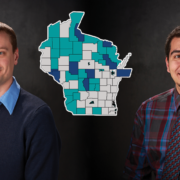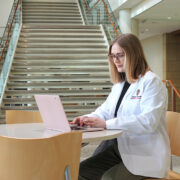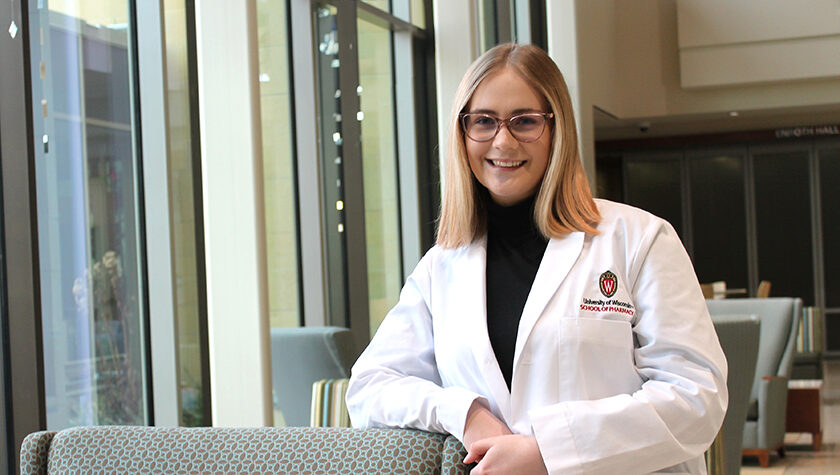
7
March

The School’s first-of-its-kind Entrepreneurial Training and Independent Pharmacy APPE Track teaches PharmD students how to innovate care
By Logan Underwood
About a third of community pharmacies are independent, according to the National Community Pharmacists Association. Without the services and policies being prescribed by a larger chain or brand, independent pharmacies are agile, building relationships and adapting their services to meet their community and patients’ specific needs.
“Studies have shown that doctors see patients less than four times a year, whereas community pharmacists typically see a chronic patient, on average, 15 or more times a year,” says Michelle Farrell (BS ’99, PharmD ‘00), owner of Boscobel Pharmacy in Boscobel, Wis. “We can see the finite changes in our patients and can intervene before things are more emergent.”
For example, she points to detecting abnormalities in blood pressure, changes in blood sugar, or evolving mental health situations. In independent pharmacies, pharmacists can practice at the top of their license, employing the full breadth of their expertise.
“These kinds of opportunities we’re maximizing are so important for the community’s health care,” says Farrell, who also owns Center Pharmacy in Richland Center, Wis.
“This provides another avenue for our student pharmacists to be entrepreneurial, to be really energized by the ability to create new programs, and to develop new structures to take care of patients.”
—Michelle Chui
To prepare student pharmacists to deploy their exceptional training to meet the unique challenges and opportunities of this dynamic and impactful environment, the University of Wisconsin–Madison School of Pharmacy has partnered with Wisconsin CPESN (Community Pharmacy Enhanced Services Network) practitioners to launch a new program: the Entrepreneurial Training and Independent Pharmacy Advanced Pharmacy Practice Experience (APPE) track.
“There’s a number of our students who really want to serve small communities in independent pharmacies,” says Michelle Chui, professor in the School’s Social and Administrative Sciences Division and Hammel-Sanders Distinguished Chair in Pharmacy Administration. “They want to be leaders and resources for their communities, but we didn’t have a mechanism for them to get specialized, advanced training in that area — until now.”
A new track to success
CPESN — a national network offering support for independent pharmacies to pursue value-based healthcare that increases the quality of patient care while reducing the overall cost — identified a growing need for PharmD students with substantial experience in independent pharmacies.
“This issue kept coming up in meetings among pharmacists saying, ‘We need to figure out how to create a pipeline to identify and encourage individuals who want to build this special experience,’” says Chui.
Chui worked with Farrell, the network lead luminary for CPESN in Wisconsin, and Amanda Margolis (PharmD ‘09), associate professor in the Pharmacy Practice and Translational Research Division and experiential learning coordinator, to design the new program to help build that pipeline.
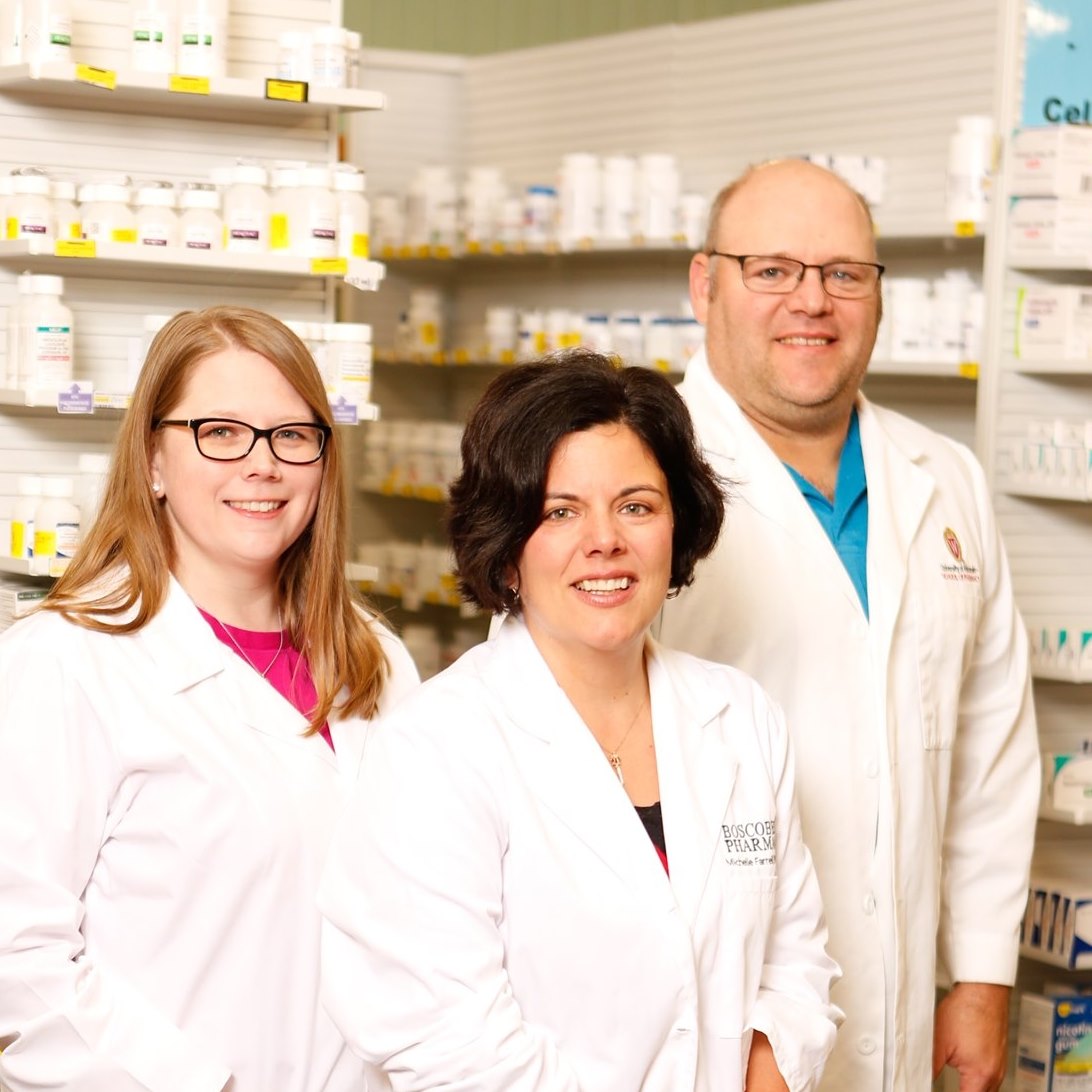
Although the School’s Operations and Technology Management concentration in the PharmD program also builds important healthcare leadership and management skills, the team wanted the APPE track to focus on opportunities for public health and providing primary care to complex patients through the development of new services.
Chui, Margolis, and collaborators decided to utilize the structure of the School of Pharmacy’s successful Residency Track APPE, which enables PharmD students to stay at the same hospital or clinical pharmacy over the course of multiple rotations for a more immersive experience. Similarly, the Entrepreneurial Training and Independent Pharmacy Track APPE program has PharmD students complete three of their eight six-week rotations at a single CPESN-affiliated community pharmacy. This allows students to build meaningful connections with pharmacists and learn more about what goes into managing an independent pharmacy.
“This track is valuable for students interested in independent pharmacy practice as it provides an avenue of specialized mentorship and training,” says Professor Mara Kieser (BS ’81, MS ’84), assistant dean for experiential education. “Through the track’s three longitudinal experiences, the student is immersed in the pharmacy practice and really has the opportunity to learn management and clinical skills from the preceptor while working on a patient care project focusing on a new patient care service.”
Morgan Oettinger, third-year PharmD student, is one of the first students to enroll in the new Entrepreneurial Training and Independent Pharmacy Track and is excited about the possibilities.
“This track will help me see more of the business side of pharmacy,” says Oettinger. “I wanted to get further experience in what owning looks like to prepare myself for the future.”
“Students provide a springboard to projects we are expanding and implementing.”
—Michelle Farrell
Oettinger, who was also recently selected for the ACT Pharmacy Collaborative’s Community Pharmacy Student Scholar Leaders program, hopes to enter into a leadership position at an independent pharmacy after graduation.
“This is a one-of-a-kind program that we’re developing,” says Chui. “I can’t overstate the importance of the stakeholder-engaged co-design process that these pharmacists in CPESN have engaged in and have spent time in thinking about what makes sense for students, pharmacies, and the curriculum.”
Community-based care
Independent community pharmacies have latitude to offer expanded services to meet patient needs, including vaccinations, medication reviews, and free deliveries to homebound patients.
“The idea is to support the community and really provide something beyond just medication,” says Chui.
Oettinger is set to start her 18-week rotation at Boscobel Pharmacy in August of 2024. At Boscobel Pharmacy, Oettinger will work under Farrell and earn hands-on experience in managing a community pharmacy.
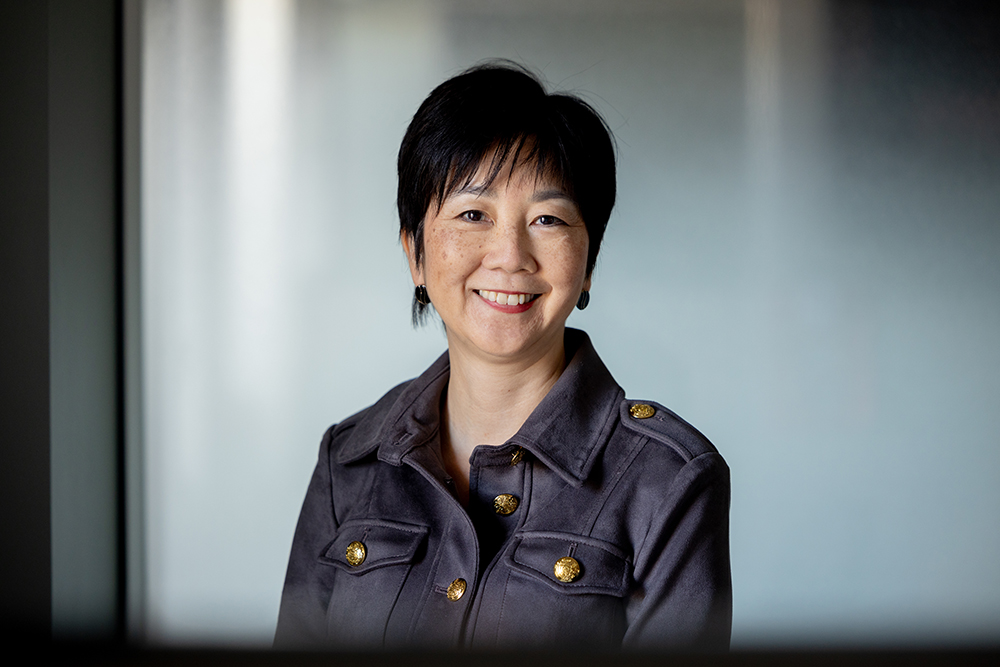
Fitchburg Family Pharmacy and Streu’s Pharmacy Bay Natural in Green Bay are also partnered with the ETIP program. By design, all three locations are a part of the Wisconsin CPESN.
Farrell sees clear benefits for pharmacy students interested in community pharmacy.
“The advantage is that we’re nimble as an independent pharmacy,” says Farrell. “We can adapt services to the needs of my community quickly.”
Farrell and Boscobel Pharmacy demonstrated this during the COVID-19 pandemic. They were able to quickly offer point-of-care testing and administer vaccines at a time in which other pharmacies struggled to do so. Now, Farrell is excited to teach the School’s student pharmacists how community pharmacy can play a large role in local public health.
For Oettinger, it is also essential to learn the entrepreneurial aspects of pharmacy that wouldn’t be taught in other clinical rotations.
“I am excited to learn about the behind-the-scenes activities,” Oettinger says. “Looking at inventory, looking at payroll, looking at your finances — when you are an owner or manager, you need to know every aspect of your business.”
“This is a one-of-a-kind program that we’re developing.”
—Michelle Chui
For Farrell, this new program is another essential step in continuing to advance pharmacy practice by educating practitioners ready to challenge and change the status quo.
“Wisconsin pharmacy is incredibly strong,” says Farrell. “The Pharmacy Society of Wisconsin and the School of Pharmacy have paved the way for pharmacy practice to move forward in all aspects of pharmacy, and our community pharmacy practices are nationally known as innovative. I’m super excited about having the opportunity to connect with the students who will be the next leaders.”
An innovative future
PharmD students enrolled in the program have the opportunity to gain responsibility and leadership in their independent pharmacy positions. They are encouraged to organize community events, communicate with patients, and propose new initiatives or services.
For example, at Fitchburg Family Pharmacy, student pharmacists on rotation have been charged with preparing the pharmacy to adopt a new technology, so they are exploring the return on investment, planning the implementation and training, and more.
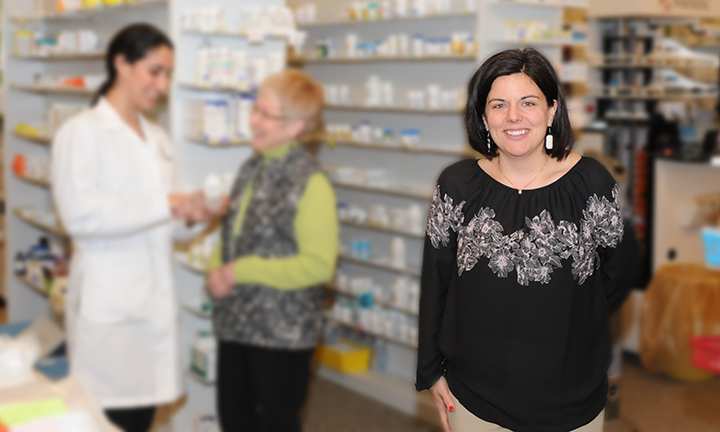
“They have an opportunity to learn on the job with a safety net so that when they go out into their own pharmacies, they’re not afraid to try new things,” says Chui.
Farrell sees a similar value in the new track’s opportunity for students to take the leap into community pharmacy.
“Students provide a springboard to projects we are expanding and implementing,” says Farrell. “This year, with pharmacist provider status rolling out in Wisconsin, is going to be an incredibly exciting time for pharmacists. Pharmacists have been handcuffed to the reimbursement on the product; with provider status, we will roll out reimbursement for our cognitive services around the collaborative practice agreements we have garnered. The timing of this program could not be better.”
Chui sees the Entrepreneurial Training and Independent Pharmacy Track APPE as a way to improve the School of Pharmacy’s student experience by offering them a highly customizable education.
“This provides another avenue for our student pharmacists to be entrepreneurial, to be really energized by the ability to create new programs, and to develop new structures to take care of patients,” says Chui. “I think this is a really innovative, important program.”


